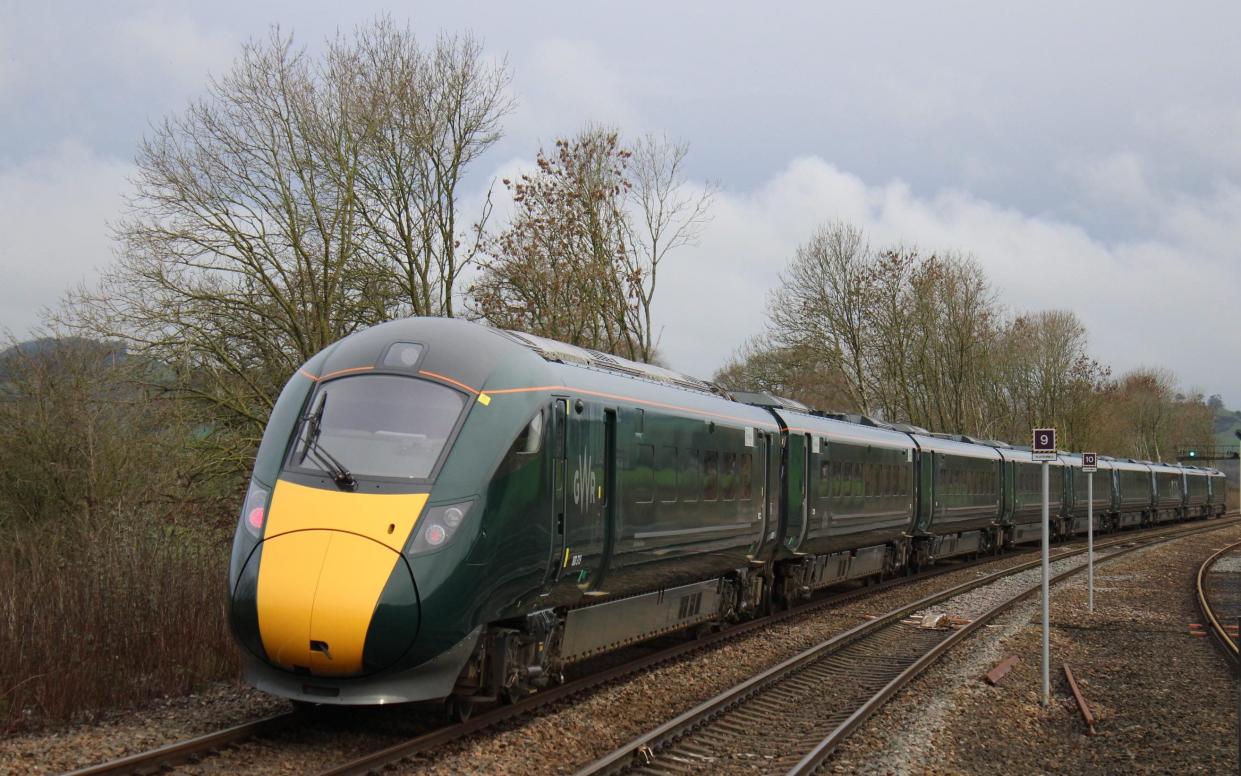Rail chaos: Operators suspend trains over fears of cracks in carriages

Britain’s rail network will endure a “prolonged period” of chaos after hairline cracks were discovered on high-speed trains, a Government minister said yesterday.
In one of the biggest recalls of national infrastructure, 182 Hitachi Class 800 series trains were taken out of service to investigate aluminium sections of their chassis for signs of metal fatigue.
Chris Heaton-Harris, the rail minister, said the checks were “precautionary”, but demanded train operators provide adequate rail replacement bus services as well as a simple compensation process for the thousands of people affected.
The recall meant two of the country’s busiest railways run by Great Western Railway (GWR) from London Paddington to Cornwall, and from the capital to Scotland on and London North Eastern Railway (LNER) were severely affected.
The journey backlog will prove particularly difficult to clear because many stranded passengers hoping to travel today will discover trains already fully booked due to a reduced capacity to meet social distancing requirements.
The prospect of yet more cancellations and packed services will also hamper efforts of commuters trying to return to work after lockdown, as well students heading back to university.
Hitachi apologised after trains were recalled from 5am as the public was advised to avoid attempting to travel on affected routes.
The extent of the disruption caused by the Hitachi recall, was tracked by Realtime Trains, which monitors the performance of the rail network. By 1pm yesterday, 140 planned services had been cancelled.
Only last month, GWR took six of its Hitachi intercity trains out of service after fatigue cracking was found in its suspension system which prevents carriages from swaying.
The latest hairline cracks were found on the lifting points under the carriage of some of the trains triggering the recall.
A GWR spokesman said the latest cracks had been found in “more than one” of the Class 800 trains, introduced only a few years ago.
Hull Trains, which has only five Class 800 trains, returned to a normal service by lunchtime, although its network remained “extremely busy”.
The TransPennine Express returned ten of its 19 Hitachi trains to service after they were given the all clear. One of the remaining nine was discovered to have the hairline cracks.
It is feared the disruption will continue this week for long distance LNER routes from London to Edinburgh and Aberdeen, and on GWR between London Paddington, Bristol, Cardiff and Penzance, despite more than 30 of its 93 Class 800 trains being given the all clear yesterday.
Anthony Smith, chief executive of independent watchdog Transport Focus, said: “Safety must always come first. However, it is very disappointing this is happening on a relatively new set of trains.”
Bruce Williamson, a spokesman for Rail Future which campaigns for better train services, said it was “inevitable” new trains have teething problems.
“It's not unique to trains, but it's annoying when it happens,” he said. “In normal circumstances the disruption would be much worse, so it's not as bad as it could have been because passenger numbers are quite depleted because of Covid restrictions.”
Travellers at railway stations across the country were left stranded as timetable began flickering cancelled signs from early yesterday morning.
Some passengers heading to airports to fly home or on holiday were forced to pay hundreds of pounds to take taxis to complete their journeys.
Others travelling between cities such as London and Edinburgh had to book hotels for the night in the hope the network would be restored the next day.
Mr Heaton-Harris said he shared the frustration felt by passengers, and urged people to check before travelling.
“Safety is always our absolute priority, so these trains have been taken off the network to undergo full and rigorous checks.
“Hitachi are working to complete these strict precautionary checks. Trains will be returned to service as quickly as possible once they are fully approved as safe by the manufacturer.
“Whilst some trains are starting to be reintroduced, disruption is likely for a prolonged period, particularly on GWR.”
Speaking after a meeting with rail bosses, he said he had asked train operators to put on extra staff to help people complete their journeys, as well make information on refunds and compensation clear.
He added: “We have also asked the industry to conduct a rapid and comprehensive review to resolve the issue.”
LNER warned they would only be running a reduced service across its route due to the recall.
A spokeswoman said: “Due to a number of Hitachi Class 800 trains from several train companies being taken out of service for checks as a precautionary measure, there will be a reduced number of services in operation across the LNER route.
“The issue is being investigated and once trains have been checked, but we hope to be able to release them back into service as soon as possible.
“We apologise for the disruption caused and are advising customers not to travel on Sunday 9th May, with tickets valid until Sunday 16th May. Alternatively, customers can claim a refund from their original point of purchase."

 Yahoo News
Yahoo News 
